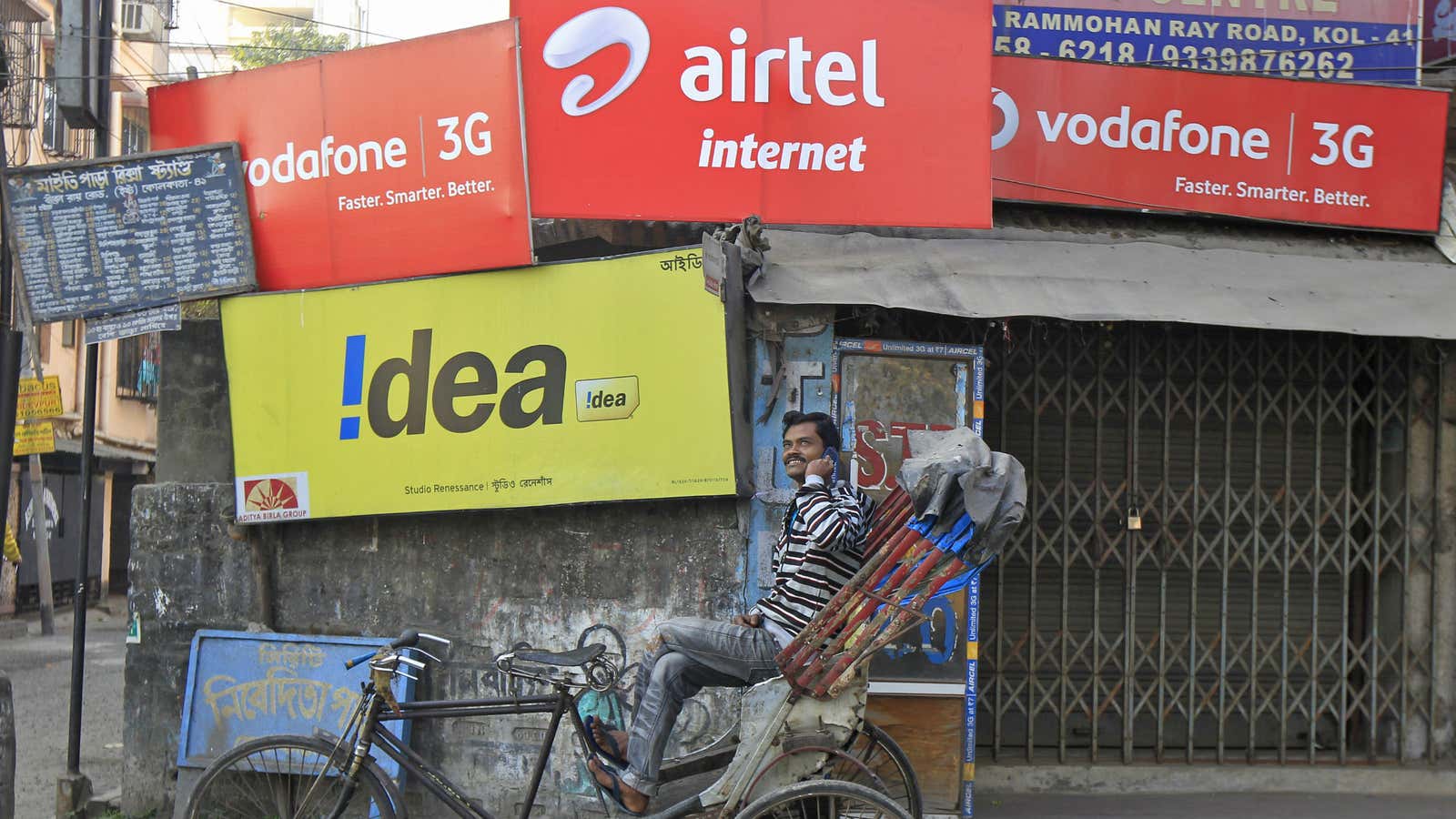An acquisition announced this morning may be the first step to fixing the unholy mess that is the world’s second-biggest telecoms market. India’s largest (and the world’s fourth-largest) mobile operator, Airtel, has acquired its smallest, Loop Mobile, for Rs 7 billion ($112 million), including Rs 4 billion in debt.
The country’s telecoms market is often cited as an shining example of deregulation. In the year 2000, before the sector took off, India’s 1 billion people had a piddling 28.5 million phone lines between them, mostly landlines. Today, most Indian adults carry a mobile phone and can cheaply connect to any part of the world.
But the sector has also been mired in corruption and mismanagement: In 2011, authorities reported that the telecoms ministry had allocated telecom licenses at throwaway prices, causing some $28 billion in lost revenues for the government. Several new operators that had rushed in to take advantage of the country’s booming telecom market had their licenses withdrawn and the industry was thrown into turmoil. Earlier this month, operators spent nearly $10 billion to win new licenses, showing just how attractive the market remains.
Yet even with 886 million subscribers between them, Indian mobile network operators struggle to turn a profit. The average revenue per user (ARPU), an industry standard, hovers at Rs 100, or $1.60 (pdf), per month. ARPU in America, by contrast, is closer to $70. There are many reasons for this, among them the fact that most Indian subscribers are poor and spend on little apart from voice calls and texts. But the biggest culprit is competition: Far too many mobile operators compete in diverse areas of the country for scraps of the market. Few telcos can boast all-India coverage. And while this is great for consumers, it’s unsustainable for the industry.
The solution, therefore, is in consolidation. Loop, which operates only in Mumbai, will add its 3.2 million customers to Airtel’s 4 million in the city, helping Airtel leap over Vodafone as the largest in the Mumbai circle. (India is divided in 22 “circles,” or networks, and hands out licenses separately for each one; customers traveling from one circle to another must pay roaming fees.)
More such deals can be expected. The competition for new subscribers—and to retain existing ones—remains fierce. Among the likeliest candidates for acquisition are Aircel, a small network, and Tata’s joint venture with Japan’s NTT DoCoMo, which is bigger but struggling, reports the Financial Times (paywall). “There are a number of other companies that are on the block, so more deals are likely to follow,” analyst Ankur Rudra told the paper.
